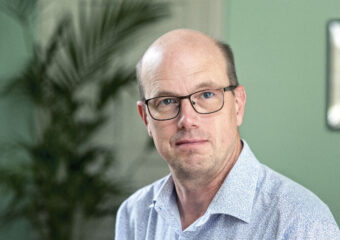Debate: “New migration rules could result in brain drain”
This is a translation of a debate article in Swedish, ”Nya migrationsregler kan orsaka forskarflykt”. The Swedish article was published in Svenska Dagbladet on August 24.
The debate about what the rules for residence permits should be in the future has probably not escaped anyone. The Swedish Association of University Teachers and Researchers, SULF, and the Swedish National Union of Students, SFS, are amazed that the focus for politicians seems to have been entirely on asylum immigration. The government seems to have completely overlooked how the new regulations will affect other groups, such as doctoral candidates and researchers from countries outside the EU/EEA area. SULF and SFS demand that the Swedish Parliament immediately re-examine the issue of how highly qualified people can continue to live in Sweden so that they can contribute to our welfare through their valuable work at our universities, companies and other important organisations.
Today in Sweden, around 40 per cent of all doctoral candidates and around 75 per cent of all staff with career-development positions, (a position people have within a certain time after completing their doctoral degree) have a foreign background. They are an extremely important resource for the future of Swedish research. Being able to keep them in Sweden is therefore crucial for the supply of skills both at our higher education institutions and in other parts of the economy.
In July 2014, an amendment was made to the Aliens Act that made it possible for doctoral candidates who have had a residence permit for four years to apply for and be granted a permanent residence permit. The proposal was developed by the then Alliance parties together with the Green Party, but it had broad support in Parliament. Corresponding opportunities also exist for people who have a residence permit for work or for research. The reason for introducing this provision for doctoral candidates was that they were regarded as constituting a highly qualified group of people that Sweden needs and to make Sweden be an attractive country for such people.
With the new migration legislation introduced on 20 July 2021, these possibilities are being undermined. Conditions for knowledgeable and well-educated researchers to continue to contribute to knowledge development and innovation in Sweden have been worsened significantly. In addition, there are no transitional rules, so doctoral candidates and researchers who decided to come to Sweden several years ago due to the previous regulations suddenly find themselves without the opportunity to pursue the life and research projects that they had planned. Many are in despair and, based on the previous regulations, they have built a life, started a family and embarked on a career in Sweden. To suddenly find themselves facing completely new conditions is devastating. It jeopardises Sweden’s international reputation as a research nation.
There are of course different views on what the requirements should be for people to be granted a permanent residence permit. The problem with the new requirement regarding means of financial support that has now been introduced for doctoral candidates and researchers is that it is very poorly adapted to the conditions that prevail within higher education. The new migration legislation means that such people must now have a job which, in the opinion of the Swedish Migration Agency, has a duration of at least 18 months from the time the decision on permanent residence is made. The vast majority of those affected have or will get a job, but few can show that it will last for 18 months because they are initially employed on shorter fixed-term contracts that are often subsequently extended. There is now a danger that many qualified people choose not to come to Sweden due to this uncertainty about the future, and that those who are already here seek opportunities in other countries. These are people in whom Swedish taxpayers have invested large sums of money to educate and develop into the leading researchers and teachers of the future.
We ask ourselves why the politicians in the Swedish Parliament have turned a blind eye to this despite the warning signals from SULF, SFS and others before the new legislation was passed. Do they no longer consider it important that we are able to retain these highly qualified people in Sweden? Is it better that we educate and develop them and then let other countries reap the benefits of their work? It would at least have been fitting if that view had then been expressed in the work that preceded the new legislation. Or is it that they did not think about the consequences of the new regulations because they were so busy tightening the requirements for asylum seekers?
We now demand that the politicians in the Swedish Parliament reconsider the matter of allowing highly qualified people to stay in Sweden and contribute to our welfare through their important work at our higher education institutions, companies and other important organisations. Otherwise, we risk brain drain on a scale we have never seen before.
Do it again and do it right!
Mats Ericson, President of SULF
Jenny Iao-Jörgensen, Chair of the SULF Doctoral Candidate Association
Oskar M. Wiik, Vice President of SFS (The Swedish National Union of Students)
Pil Maria Saugmann, Chair of the SFS Doctoral Student Committee
